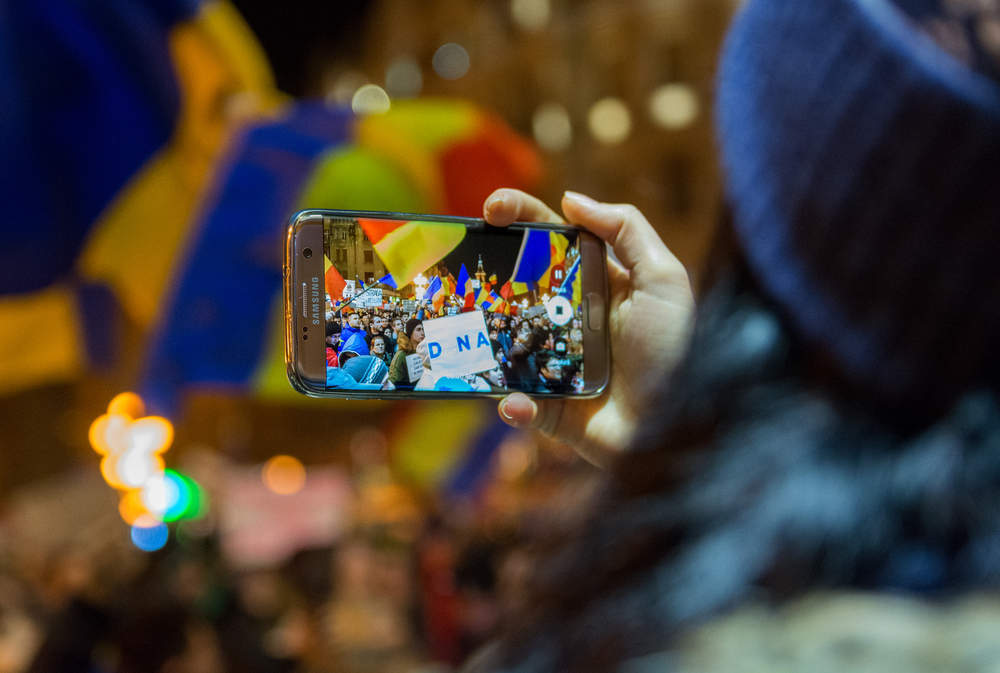
A young team of IT-savvy volunteers is working on an app that empowers Romanian citizens to more easily follow changes in the country’s legislation.
The project hopes to insert transparency in a currently opaque policy-making process.
Romania’s legislative process has come under scrutiny in recent weeks, after tens of thousands of people took part in mass protests against the government’s attempt to pass a highly controversial ordinance.
If successful, the law would have decriminalised official misconduct in cases where the financial damage was less than 200,000 Romanian leu ($47,000) — a move which many saw as a duplicitous attempt to pardon senior politicians charged with corruption.
The incident shed light on the lack of transparency in the country’s judicial system.
Now, newly founded NGO Code for Romania aims to change that by launching an app that would keep citizens up to date with the latest policy changes.
How well do you really know your competitors?
Access the most comprehensive Company Profiles on the market, powered by GlobalData. Save hours of research. Gain competitive edge.

Thank you!
Your download email will arrive shortly
Not ready to buy yet? Download a free sample
We are confident about the unique quality of our Company Profiles. However, we want you to make the most beneficial decision for your business, so we offer a free sample that you can download by submitting the below form
By GlobalDataThe purpose of the project, called What does the law say? (Ce zice legea?), is to make current legislation changes easily accessible via the user’s smartphone. People will also be able to subscribe to the laws of interest and get constant updates on any piece of legislation that concerns a particular topic.
“If you don’t even know something is cooking, you miss an opportunity to get involved,” says Bogdan Ivănel, co-founder of Code for Romania.
“While the app does not allow the user to actually participate in a debate, it certainly creates the premise for people to get involved and get their opinion voiced on matters that affects them.”
The idea originated last year, when the team behind Code4Ro took part in DIPLOHACK, a program aimed at using open data to tackle bureaucracy and make public institutions more accessible to EU citizens.
“The Romanian institutions face major challenges in tapping the potential of digital technologies and offering transparent and open data to its citizens,” says Code4Ro technology specialist Victor Cleja. “Moreover, citizens’ participation is hindered by a wide digital divide and a low digital literacy of governmental service offering.
“No one is up for tracking dozens of websites daily to be kept informed, and sometimes we find out too late about laws which affect us. If we can solve this gap through a tech solution, why not do it?”
In the midst of the anti-corruption protests, the team published a Facebook post calling for volunteers to help build the app.
“It went completely viral, with more than 200 people contacting us, wanting to get involved,” says financing strategist Maria Neicu. “So there was a hunger to get involved and offer people a platform to volunteer for things they believe in.”
The content of the app will be sourced from the Official Journal of Romania and the web portal managed by the Romanian Ministry of Justice.
The process of translating difficult legalese into an easy-to-grasp text will be done in collaboration with Funky Citizens, an organisation focused on civic education through data and technology.
The data behind the app is available on GitHub in open source format, so that anyone can freely modify and use it.
“We are also currently discussing options with a company that has an up-to-date database of the Romanian consolidated legislation,” Cleja says. “If we partner with them, we would get free access to some categories of legislation that are relevant for the general public. We will pick those categories together with our legal team, and will thus process related data.”
The team is currently looking for law firms and volunteer legal experts who would be able to work with them on a pro-bono basis.
“At a higher level, this will be a first iteration of a great idea, a proof of concept. We might discover new challenges as we go further,” Neicu says.
“We’ve mobilised people with different skills to solve this challenge together. And that’s the most important proof of concept – one of empowerment, to show that yes, it is possible to come together and join forces for finding a solution to something we all care about.”







